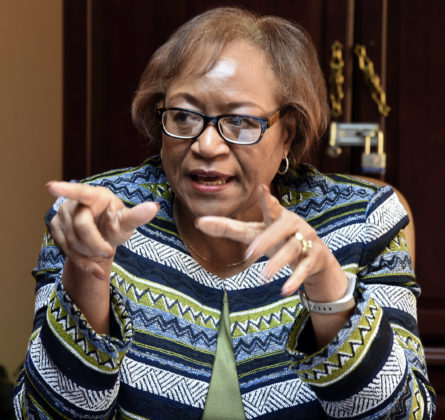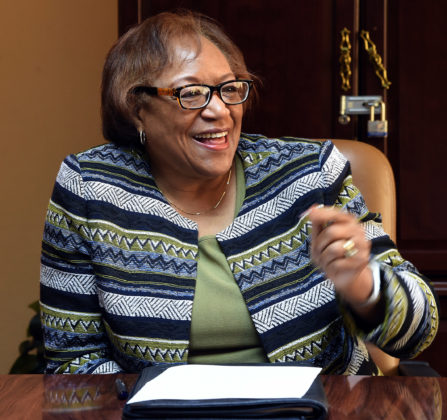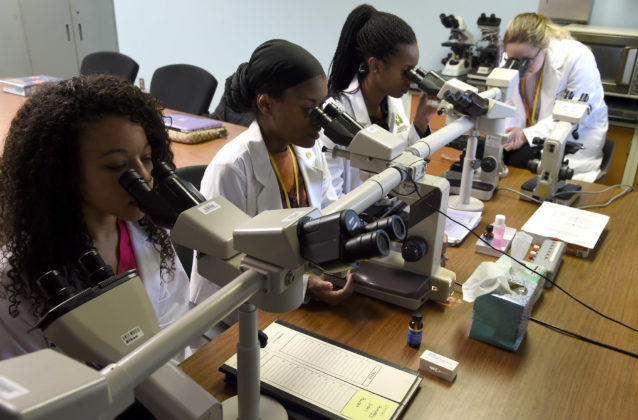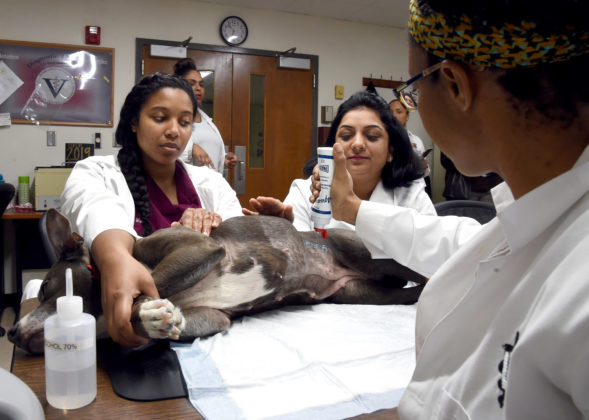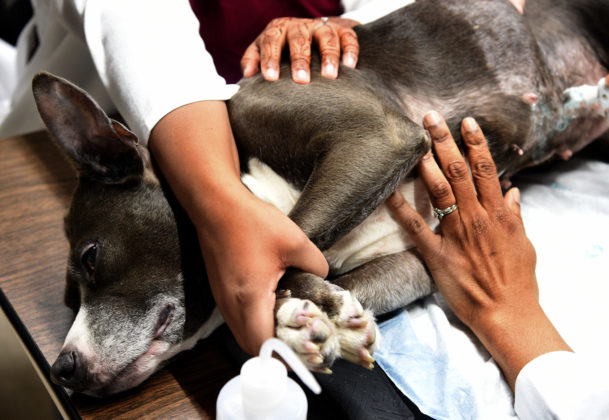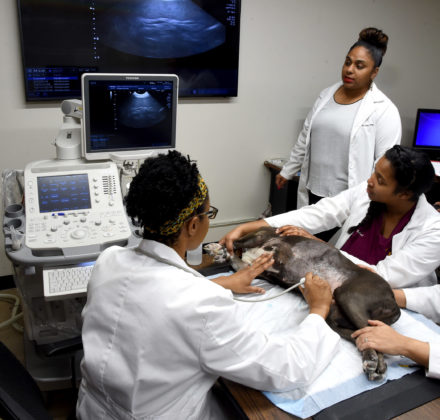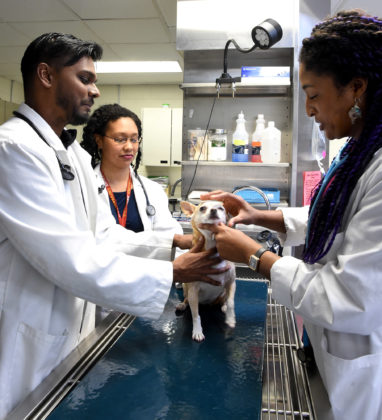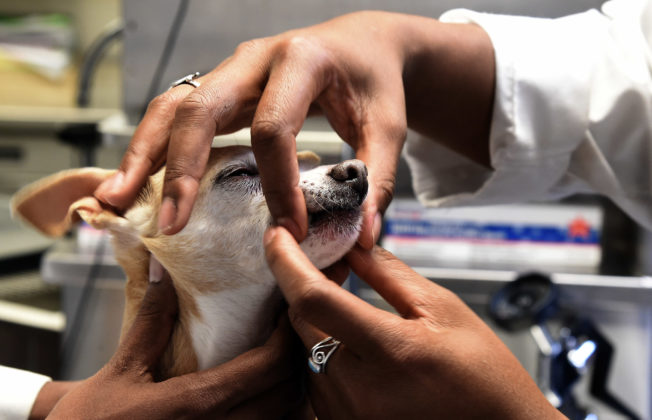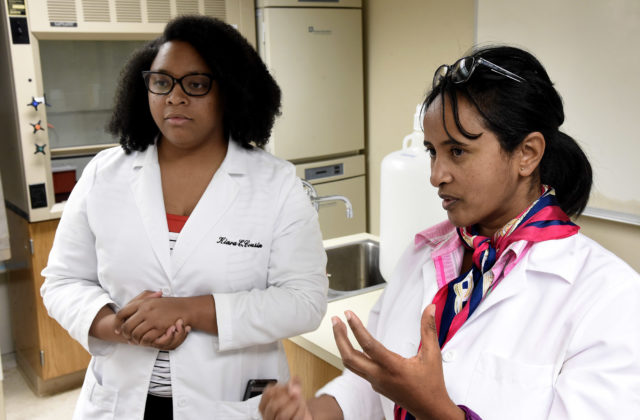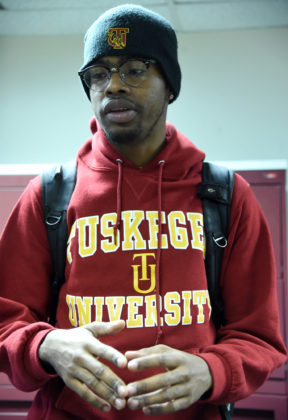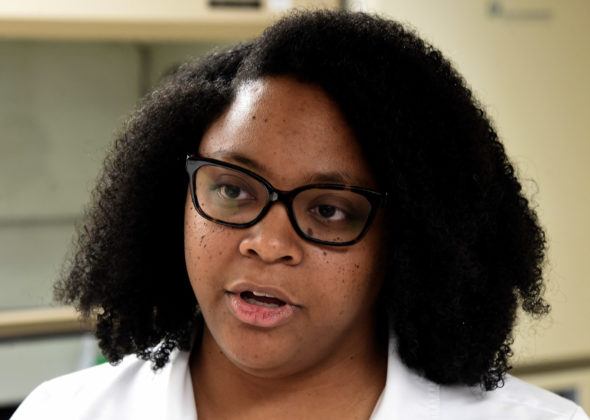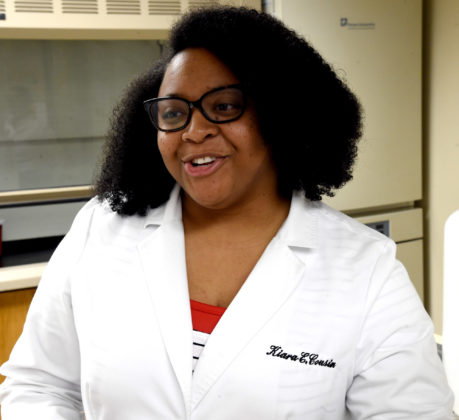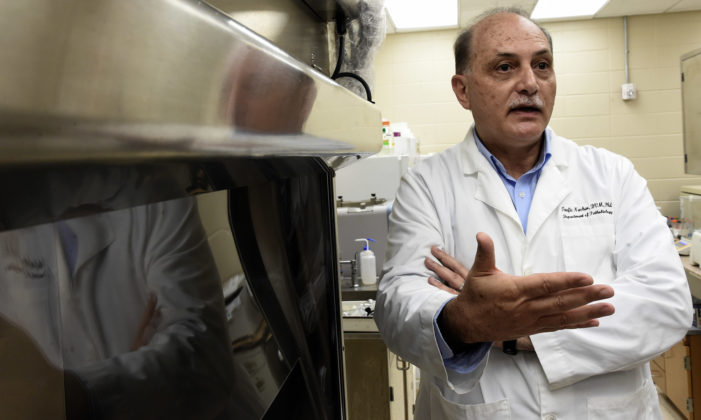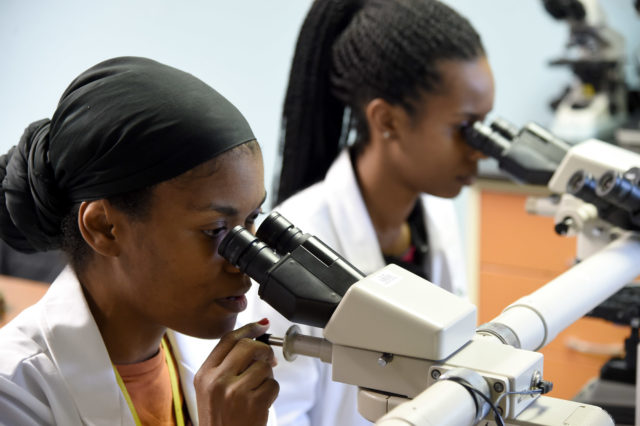
By Ameera Steward
The Birmingham Times
Kaitlynn Pfeiffer, a first-year student at the Tuskegee University College of Veterinary Medicine (TUCVM), knew there was something special about the institution during an early visit.
“When I was here on the day of the interview [for vet school], it was like being welcomed to your family’s living room,” she said. “It was just a very family-friendly atmosphere and somewhere you knew you would be able to thrive as a student.”
Pfeiffer, who is from Syracuse, N.Y., has been able to thrive because of the school’s support network.
“It’s just having that support, getting you through vet school, because it’s going to be difficult no matter where you go,” she said. “Having that extra sense of people looking out for you is what really makes me like Tuskegee. I feel like a lot of other vet schools may not have that caliber of … open-arm atmosphere that Tuskegee has.”
Welcome to the Tuskegee University College of Veterinary Medicine (TUCVM), the only veterinary medical professional program located on the campus of a Historically Black College or University (HBCU). The TUCVM has educated about 70 percent of African-American veterinarians and is recognized as the most diverse of all 30 institutions of veterinary medicine in the nation.
“I liked it because [it has] … smaller class sizes, so you have more personal relationships with the professors,” Pfeiffer said. “You’re not just a number in the classroom.”
Long-Lasting Relationships
Deval Coleman, a sophomore animal science major from Los Angeles, Calif., said the university pushes students to achieve their fullest potential. Coleman said he also learns by shadowing one of the school’s veterinarians, Associate Professor of Clinical Pathology Athema Etzioni, Doctor of Veterinary Medicine (DVM), who helps him develop clinical skills in the area of small-animal medicine.
“I think the relationships I build here are going to be long-lasting,” Coleman said, adding that he would like to open a small-animal clinic and specialize in mixed-animal medicine, practicing on both large and small animals. He also would like to follow in his professor’s footsteps by returning to teach in the TUCVM clinical labs.
The legacy, mission, and family atmosphere are what set the institution apart, said TUCVM Dean and Professor of Radiology Ruby L. Perry, DVM.
“You’re family from the discipline perspective, but [the school also focuses on] mentorship and making sure African-Americans stay on the right track through that mentorship,” she said, adding that she attended a predominately white institution and struggled to find someone who could understand how she would feel in certain situations.
That’s not the case at Tuskegee, Perry said: “We meet those needs because when we say ‘Family,’ [it means] you can come to us, … you’re looking at someone that looks like you … in an environment that understands what you’re feeling, [with people] who understand because they’ve been in that same environment.”
Trailblazing Alums
TUCVM alumni can be found across the country, said Pamela Martin, DVM Head of the Department of Small Animal Clinical Sciences—and that includes Birmingham.
At Southern Research, a downtown Birmingham-based nonprofit research organization, Sheila D. Grimes, PhD, DVM, serves as an anatomic pathologist and oversees a team of pathology, histology, necropsy, and clinical pathology personnel. A veterinary pathologist with more than 30 years of experience, Grimes earned her DVM and Bachelor of Science (BS) degrees from Tuskegee.
“We have graduates in pretty much every state, so that’s a big draw for our students because they come from other places, which helps with networking and finding jobs and other opportunities,” Martin said. “If you go to a state school, a lot of graduates are probably from that state, so that outward networking may be more limited.”
Perry knows firsthand the value of a TUCVM education; she is an alum who earned both a BS in animal and poultry science and a DVM at the university.
“I wanted to give back to Tuskegee, which gave me an opportunity to receive an excellent education and become the first African-American female board-certified veterinary radiologist,” she said.
Perry returned to her alma mater to make a difference and be a trailblazer, a value that is inspired in every Tuskegee University student.
“That’s just instilled in us. … Somebody gave you an opportunity, and you share that with somebody else, and when you leave you share that with somebody else,” Perry said. “That’s what we refer to as that ‘Tuskegee Experience.’”
Student Development
Elizabeth Yorke, DVM , Section Head for Large Animal Medicine and Surgery, said the average first-, second-, third-, and fourth-year classes, year to year, have about 60 students, which is good because students get to know her.
“I can help them individually,” she said, “If [a student] is looking to become an equine specialist [and] wants to do an internship and a residency, I can take my time with that individual student and say, ‘Let me help you toward your career goals. Let’s decide what might work for you based on where you want to go geographically in your career goals.’ It’s very personal.”
Seeing students’ progress is one of the best aspects of working at Tuskegee, said Roslyn Casimir, DVM, Associate Dean for Academic and Student Affairs.
“I pride myself in the role of student development, especially for underrepresented minorities,” she said. “We help them develop not just academically but also professionally: how to dress, how to carry themselves … and then graduate, ready to go off into the world. … There’s no better feeling than that. That is to me the best part of my job.”
LaTia McCurdy , TUCVM Director of Veterinary Admissions and Recruitment, said faculty and staff have an open-door policy, which differs from some larger institutions, where students may have to wait an hour or two to talk to professors.
“We care about students. When our students are suffering, we suffer as a whole,” she said. “The thing we do to get you here is the same thing we do to keep you here.”
Click here to read more stories on TUCVM: At 40, Russell Johnson’s wish for a vertinary doctorate from Tuskegee about to come true.

